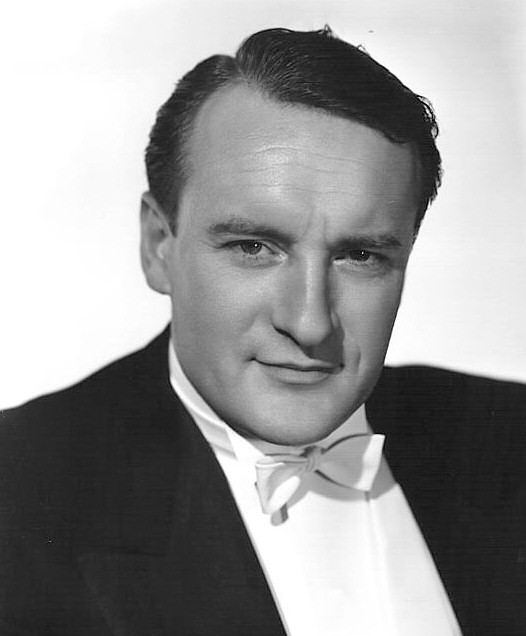“Whereas on the screen I am invariably a sonofabitch, in life I am a dear, dear, boy.”—George Sanders
George Sanders, the epitome of screen rakes and scoundrels, was born on this day in St. Petersburg, in 1906.
Nonchalant, sophisticated and never dull, Sanders didn’t look, sound or act like anyone else on screen.
A gifted actor who never took acting seriously, he also had a talent for maths and engineering, could play the piano, guitar and saxophone, had a bass-baritone singing voice and was good with languages (he spoke five). Noël Coward once said, “He has more talents than any of us but he doesn’t do anything with them.”
Sanders could write too. In 1960 he published an autobiography, Memoirs of a Professional Cad, which I searched for high and low and at last discovered, sitting inconspicuously on a university library bookshelf. It was one of the first books I borrowed and the very last I handed back in. A deliciously entertaining, if erratic, account of his life, Memoirs of a Professional Cad is replete with Sanders’ insouciant humour and cheek. It dropped out of print for a few years; thank goodness it’s back in circulation.
In celebration of his birthday, I present excerpts from Memoirs of a Professional Cad or, a treasury of George Sanders’ wit.
On his early life
“I was born into a world that was soon to disappear. It was a world of clinking champagne glasses, of colonnaded private ballrooms, with scintillating chandeliers, of heel-clicking bemonocled princes in gorgeous uniforms intent upon their ladies as they drove in their jingling troikas through the moonlit snow.
A world that was not to be recreated for forty years—and then by M-G-M in Cinemascope with Fernando Lamas.”
On the movie business
“I had had since the beginning a profound sense of unreality about my newly acquired profession which the atmosphere of Hollywood did nothing to dispel. I never really thought I would make the grade. And let’s face it, I haven’t.
I would say that I am about three-quarters of the way and this is about as far as I can get. It is far enough. It is possible that if I had started ten years earlier I might have made it all the way to the top, but acting is a profession for the young, and unless you make a solid mark when you are young, you’re better off in character work. On the other hand, if you have once made your mark as a young man, then no matter what your age becomes, you are still perpetually young in the mind of your audience. Your only problem is that of having your face lifted every once in a while.”
On taking it easy
“Perhaps my curious indifference to success will be more understandable if I explain that the driving force of my life has always been laziness; to practice this in reasonable comfort, I have even been prepared, from time to time, to work.”
On typecasting
“I was definitely a nasty bit of goods. My nastiness however was of a novel kind. I was beastly but I was never coarse. I was a high-class sort of heel. If the plot required me to kill or maim anybody I always did so in a well-mannered way and if I may say so, with good taste. And I always wore a clean shirt. I was the sort of villain who was finicky about getting blood on his clothes; it wasn’t so much that I cared about being found out, but I liked to look neat.”
On winning his Oscar
“The correct procedure for winners is to disclaim all credit for their victory and to look stunned and transported with ecstatic disbelief and surprise. This is the moment when one draws to the limit on one’s reservoir of histrionic skill…
The occasion for me was filled with such painful suspense that I never rose about a state of frozen stupefaction, in contrast to Zsa Zsa [Gabor, his wife at the time] who was soaring and plunging between enough dizzying emotional heights and depths for both of us, first of all with delight at attending this top-flight Beano, secondly with triumph at being associated with the winning team, and thirdly with black indignation when it was tactfully explained that she had not won a prize herself. She was scarcely eligible by virtue of the fact that she had not as yet made any films, but this quirk of circumstance seemed irrelevant to her, and for some time afterwards she remained both hurt and insulted.”

Leave a Reply